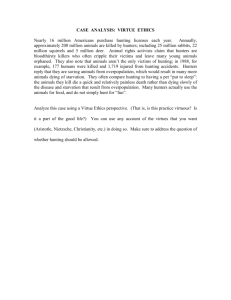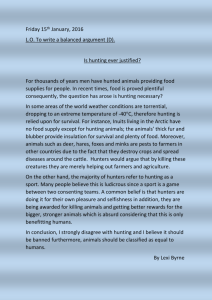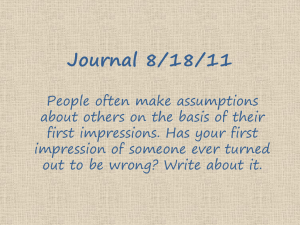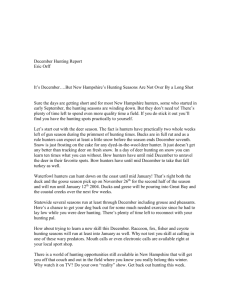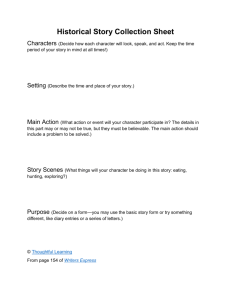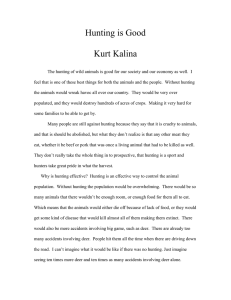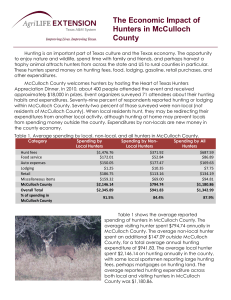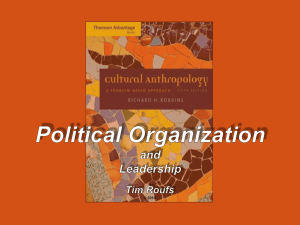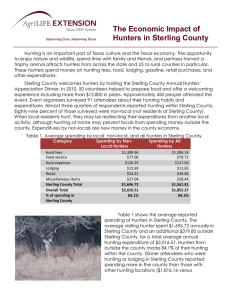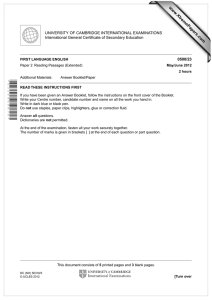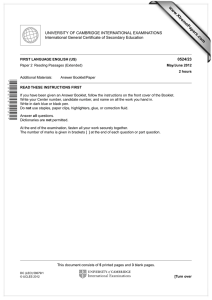ABSTRACT THESIS: Factors associated with declining hunting participation in Indiana STUDENT:
advertisement
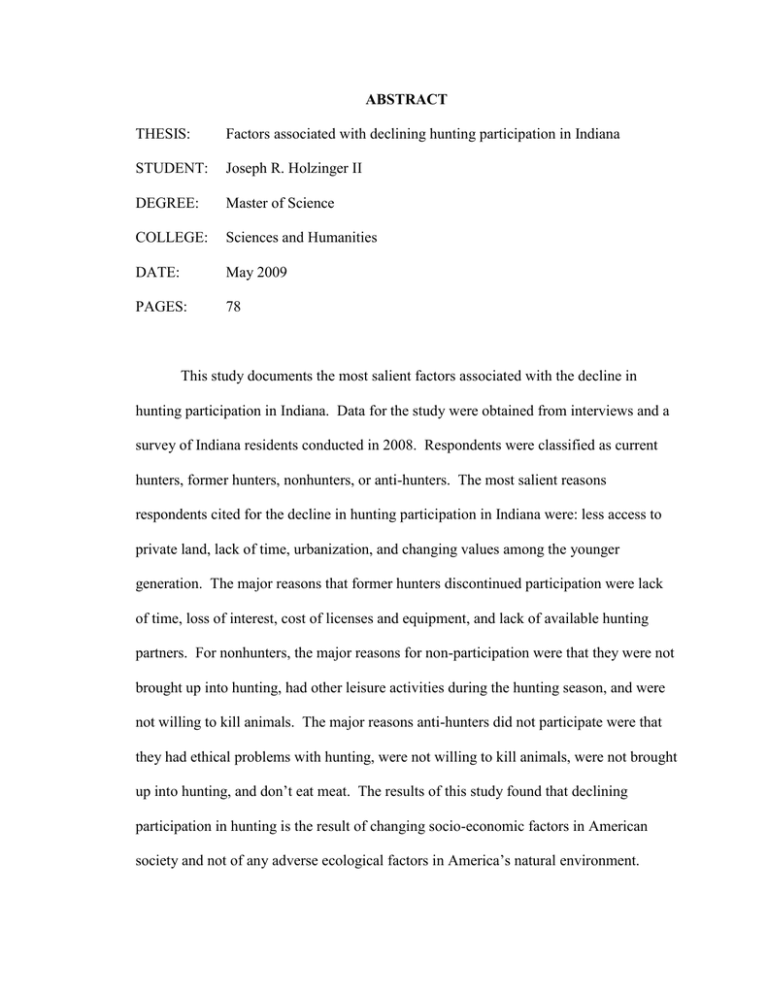
ABSTRACT THESIS: Factors associated with declining hunting participation in Indiana STUDENT: Joseph R. Holzinger II DEGREE: Master of Science COLLEGE: Sciences and Humanities DATE: May 2009 PAGES: 78 This study documents the most salient factors associated with the decline in hunting participation in Indiana. Data for the study were obtained from interviews and a survey of Indiana residents conducted in 2008. Respondents were classified as current hunters, former hunters, nonhunters, or anti-hunters. The most salient reasons respondents cited for the decline in hunting participation in Indiana were: less access to private land, lack of time, urbanization, and changing values among the younger generation. The major reasons that former hunters discontinued participation were lack of time, loss of interest, cost of licenses and equipment, and lack of available hunting partners. For nonhunters, the major reasons for non-participation were that they were not brought up into hunting, had other leisure activities during the hunting season, and were not willing to kill animals. The major reasons anti-hunters did not participate were that they had ethical problems with hunting, were not willing to kill animals, were not brought up into hunting, and don’t eat meat. The results of this study found that declining participation in hunting is the result of changing socio-economic factors in American society and not of any adverse ecological factors in America’s natural environment. Based on the results and comments from respondents, wildlife management agencies would gain the most from efforts to retain hunters, as opposed to try to recruit new hunters from the ranks of people who have no interest in it or are former hunters.
